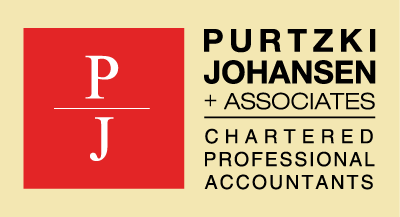
There are three basic objectives when planning for your retirement:
- Maximize your wealth: work hard and live frugally.
- Pay the absolute minimum tax on your income.
- Don’t have creditors steal your retirement nest egg.
Doctors do not seem to worry much about creditors. The reason for this is CMPA, the envy of accountants, lawyers and other professionals who lack the extensive coverage CMPA provides. As accountants, we are always alert to possible claims by creditors. Consequently, we set up holding companies, move personal assets to spouses, and invest our RRSPs with insurance companies to minimize the financial damage from a creditor’s claim.
Yet doctors are not immune to claims by creditors. Consider the situation of Dr. Bob (name assumed), a family physician, who ventured into the cosmetic laser business with two investor-partners. It cost about $1 million to set up the clinic. After 3 years of racking up 600,000 of losses, mostly financed by bank line of credits, the business had to close its doors. Then the nightmare began for Dr. Bob. Although all three shareholders provided personal guarantees for the rent, it was Dr. Bob who had to come up with the monthly rent of $8,000 because his fellow shareholders, blaming him for the demise of the business, objected to paying their share. There was no shareholder agreement in place which would have forced all shareholders to contribute their portion. Dr. Bob did not fare any better with the bank; the bank demanded repayment of the $1 million loan based on the joint personal guarantees of the shareholders. The bank mainly pursued him, because he was the easiest target to collect the money from. Getting any money from his partners was like drawing blood from a stone, and a lawsuit would have been futile.
This venture cost Dr. Bob most of his savings, and with a new mortgage on his house at age 55, he again had to focus on building the family practice he neglected while pursuing the cosmetic laser business.
What could Dr. Bob have done to limit his exposure to creditors?
- Instead of the business being the tenant, he should have set up a shell company to prevent the landlord from recovering any money owed.
- Have a shareholder agreement in place dealing with indemnification of claims and loan guarantees. The agreement would have dealt with personal guarantees granted to banks and the landlords who insisted on receiving personal guarantees for the rent obligation.
- The bank loans should have been several and not joint, meaning that the shareholder is only responsible for his pro-rata share of the debt.
Your financial situation and ventures may not be the same as Dr. Bob’s; there are many other ways that you, as a Doctor, can protect yourself against creditors.
- Take back security when making a shareholder loan to the Corporation. You become a secured creditor and you have a better chance to recover all or part of your investment.
- Set up a holding company to insulate investments against claims of creditors including patients. The holding company ideally should own shares in the medical corporation (unless prohibited by provincial legislation), so that any surplus can be paid as tax free intercorporate dividends from Medco to Holdco.
- Transfer personal property to the spouse or adult children. Ensure that your spouse does not have any personal guarantees.
- Establish a family trust; it is a wonderful creditor-proofing vehicle. While your family members are the beneficiaries of the trust you, as the trustee, keep full control over the assets and any cash distributions.
- A life insurance company can also bulletproof your investments. If you have a life insurance contract, then creditors do not have access to the funds if you make an irrevocable beneficiary designation. The designation can only be revoked with the consent of the beneficiary. You also get the creditor protection by designating as beneficiaries certain family members, including spouse, child, grandchild, or parent as specified in the provincial insurance legislation. If you designate your estate as the beneficiary of your life insurance contract, then your estate is exposed to your creditors.
- Invest in an Individual Pension Plan.
- Invest your RRSPs with a life insurance company.
Make creditor proofing a part of your prudent financial planning. It will be too late to implement any creditor proofing strategies when the creditors are knocking on your door.



